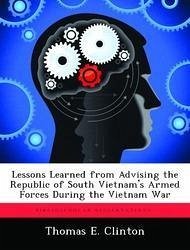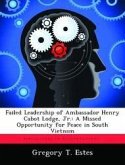The United States (US) has a long history of employing military advisors, from the American military occupation of the Philippines throughout the 19th century, and the Korea War in the 1950s, the Vietnam War 1950 to 1973, El Salvador 1984 to 1992, to current efforts in Operation Enduring Freedom and Operation Iraqi Freedom (OIF). A strong Iraqi military is needed to support the future democratic government of Iraq. This will allow the US to disengage a large portion of its combat units from Iraq. The US must train the present Iraqi military to successfully take over responsibility for Iraq's security and combat the current insurgency. The US Army and Marine Corps combat advisors will play a key role in ensuring the Iraqi military is properly organized, trained, and equipped to provide for a secure Iraq. There are lessons learned from training and advising the Republic of South Vietnam's Armed Forces (RVNAF) during the Vietnam War 1950 to 1973 that could be applied in the ongoing advisory effort in Iraq. The focus of this thesis is to determine the lessons learned from selecting, training, and the organization of US Army and Marine Corps advisors during the Vietnam War.








